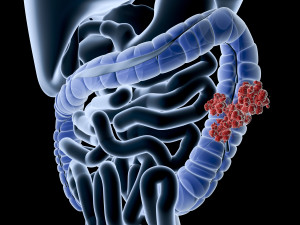Colon Cancer
Colon Cancer What is Colon Cancer?
Colon cancer is cancer that occurs in the large intestine.
Risk Factors
It is believed that excessive alcohol use, tobacco use, and high-fat foods contribute to colon cancer. There is also a genetic component to colon cancer, and patients who have relatives with history of colon cancer often need sooner and more frequent screening. Men and African Americans are at increased risk for colon cancer as well.
Colon Cancer Screening
Colon cancer is one of the most treatable cancers, provided it is detected early. Because the disease can be asymptomatic until the later stages, undergoing regular colonoscopies is essential. Colonoscopies are the most effective way to detect colon and rectal cancers. It is recommended that everyone has a screening colonoscopy at age 50 to look for colon polyps, which are small growths in the colon. These small growths can sometimes be the precursor to colon cancer. If removed, colon cancer is prevented. During your colonoscopy, Dr. Ahmed will remove any colon polyps you have, and have them evaluated by a pathologist. If the polyps are the type that could have turned into a colon cancer, Dr.Ahmed may recommend that you have another colonoscopy in 3-5 years. For patients who do not have polyps, or had benign polyps, and do not have a family history of colon cancer, the typical screening recommendation is 10 years.
Because the colon must be clean so Dr. Ahmed can detect any and all polyps, a thorough colonoscopy preparation is essential. Before your procedure, our office will provide detailed instructions for drinking the colonoscopy preparation beverages. You will also need to avoid eating or drinking anything except clear liquids for a period of time before the procedure.
You will be sedated during your colonoscopy and should experience no pain or discomfort. During the procedure, Dr. Ahmed will insert a colonoscope, which is a thin, flexible tube with a video camera attached, into the anus. He will examine the entire length of your colon, and remove any colon polyps.
Symptoms
Most people with colorectal cancer do not show any symptoms in the early stages of the disease. When they do present, symptoms may vary depending on the location of the cancer in the colon and how far it has progressed. Some of these symptoms include fatigue, weakness, unintentional weight loss, abdominal pain, blood in the stool, and change in bowel movements.
